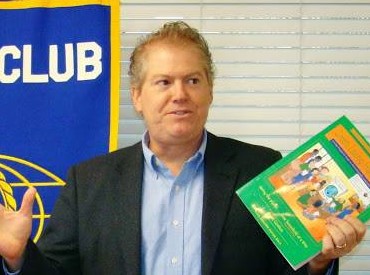There is no other amendment to the United States Constitution with more worldwide appeal than the first amendment. Sensing potential problems with keeping the new country afloat, and not wanting to repeat the mistakes of the past, the first amendment addressed problems associated with being under English control: a freedom from state religion and a freedom of speech. Three hundred years later, the first amendment is still the one amendment that can separate most countries as either based on personal freedom or centralized oppression.
Recently a journalist writing for the Washington Post described the problem of media controlled by central authorities with these words: “A state-run narrative dominates the public psyche, and while many do not believe it, a large majority of the population falls victim to this false narrative. Sadly, this situation is unlikely to change.”
One might consider the possibility that the author, Jamal Khashoggi, was writing about American media conglomerates such as Sinclair, a corporation that has built a monopoly of local television stations across the United States and forced its reporters to air and cover more conservative viewpoints. Khashoggi could also have been inferring to the role of Fox Entertainment and the rise of a right wing ideology in the production of news.
In fact, Khashoggi was writing from Virginia about Saudi Arabia, his country of birth. Khashoggi recently moved to the United States to continue practicing his craft, choosing to use his pen and his voice for freedom unfettered by the controls of the royal family. Americans do not yet comprehend such a decision, the need to leave one’s country simply to write and speak without fear of being killed. We do not yet know all the details, though the logical conclusion is that the ruling family of Saudi Arabia, considered a long-standing ally of the United States, masterminded the brutal torture and dismemberment of Jamal Khashoggi.
The response by the Trump administration has been one of hedging, not wanting to call out their ally and giving the Crown Prince of Saudi Arabia time to make up a story palatable to the free world and to economic interests. Most striking is that Khashoggi was simply doing what Americans do every day, writing and speaking his mind, and doing it from American soil for an American newspaper. The death of Khashoggi can only be made worse if the American government decides to do nothing in defense of a core American principle. It is a moral indifference that will greatly endanger journalists and freedom-loving people around the world.
What makes this all the more disturbing is that Americans have been killed in defense of Saudi Arabia on Saudi soil. Osama Bin Laden was a Saudi. The Saudi ruling family has continued to pump money into religious schools of zealotry around the world that American soldiers then end up dealing with and dying over. Women in Saudi Arabia fill a role that can only be considered as second class. It would appear that our strategic entanglement with the Saudi ruling family is one of business more than principle, yet now and then an act so egregious occurs that calls into question such hypocritical arrangements.
History teaches us that limiting the freedom of expression is the first step toward central control. Joseph Goebbels’s took ownership of all media in Nazi Germany. Russia, after Boris Yeltsin’s democratic thaw, has re-centralized most of its media, and China, not wanting to follow the Russian model, have never given up control of their media, often times with the tacit consent of American-based media such as Google and Apple. This is why real provocateurs such as Pussy Riot and Ai Wei Wei, fighting for American style principles in countries under central control, are really protected by the tacit understanding that if they were killed, there would be world political and economic condemnation.
The United States serves as a form of witness protection to those who write about greed and abuse of power. If the United States does not explicitly and firmly condone this murder, we not only damage our standing in the rest of the world, but we put more freedom-loving people around the world in jeopardy. That we don’t know or trust how the Trump administration will react is something new in American politics, and it may have been enough to allow the Saudi government to do what they did. If we remain silent, the signal to the rest of the world is that the use of force is now the bill of right, and American principles of freedom can be ignored in exchange for economic gain. If the United States joins the spin of a state sponsored murder, perpetrated by one of our supposed allies, then anything will truly be possible. We can do better.
Daniel Parker’s revised and updated book on leadership in public service, Leadership for the Quiet Revolutionary, is now available at Amazon.com and My Favorite Books.

